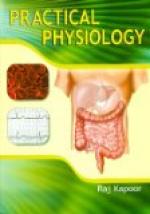Portal Vein (Lat. porta, a gate). The venous trunk formed by the veins coming from the intestines. It carries the blood to the liver.
Presbyopia (Gr. presbus, old, and ops, the eye). A defect of the accommodation of the eye, caused by the hardening of the crystalline lens; the “far sight” of adults and aged persons.
Process (Lat. procedo, processus, to proceed, to go forth). Any projection from a surface; also, a method of performance; a procedure.
Pronation (Lat. pronus, inclined forwards). The turning of the hand with the palm downwards.
Pronator. The group of muscles which turn the hand palm downwards.
Proteids (Gr. protos, first, and eidos, form). A general term for the albuminoid constitutents of the body.
Protoplasm (Gr. pro#x1FF6;tos, first, and plasso, to form). A first-formed organized substance; primitive organic cell matter.
Pterygoid (Gr. pteron, a wing, and eidos, form, resemblance). Wing-like.
Ptomaine (Gr. ptoma, a dead body). One of a class of animal bases or alkaloids formed in the putrefaction of various kinds of albuminous matter.
Ptyalin (Gr. sialon, saliva). A ferment principle in saliva, having power to convert starch into sugar.
Pulse (Lat. pello, pulsum, to beat). The throbbing of an artery against the finger, occasioned by the contraction of the heart. Commonly felt at the wrist.
Pupil (Lat. pupilla). The central, round opening in the iris, through which light passes into the interior of the eye.
Pylorus (Gr. pulouros, a gatekeeper). The lower opening of the stomach, at the beginning of the small intestine.
Reflex (Lat. reflexus, turned back). The name given to involuntary movements produced by an excitation traveling along a sensory nerve to a center, where it is turned back or reflected along motor nerves.
Renal (Lat. ren, renis, the kidney). Pertaining to the kidneys.
Respiration (Lat. respiro, to breathe frequently). The function of breathing, comprising two acts,—inspiration, or breathing in, and expiration, or breathing out.
Retina (Lat. rete, a net). The innermost of the three tunics, or coats, of the eyeball, being an expansion of the optic nerve.
Rima Glottidis (Lat. rima, a chink or cleft). The opening of the glottis.
Saccharine (Lat. saccharum, sugar). The group of food substances which embraces the different varieties of sugar, starch, and gum.
Saliva. The moisture, or fluids, of the mouth, secreted by the salivary glands; the spittle.
Sarcolemma (Gr. sarxi, flesh, and lemma, a husk). The membrane which surrounds the contractile substance of a striped muscular fiber.
Sclerotic (Gr. skleros, hard). The tough, fibrous, outer coat of the eyeball.




